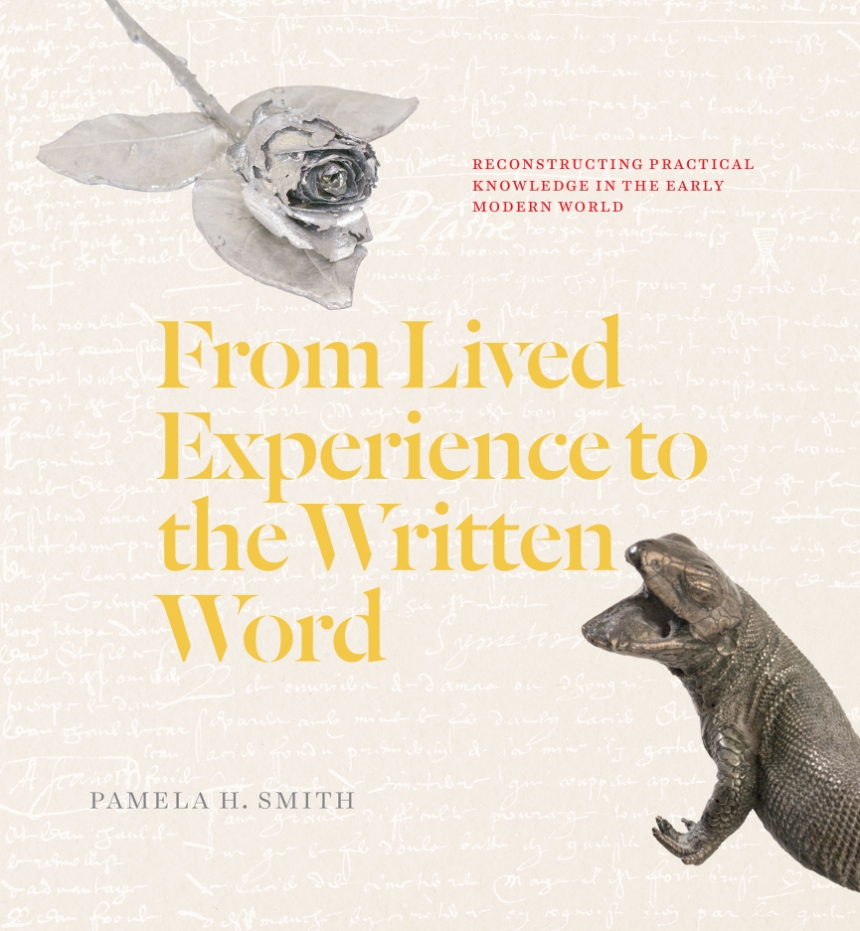From Lived Experience to the Written Word
Reconstructing Practical Knowledge in the Early Modern World
9780226818245
9780226818238
From Lived Experience to the Written Word
Reconstructing Practical Knowledge in the Early Modern World
How and why early modern European artisans began to record their knowledge.
In From Lived Experience to the Written Word, Pamela H. Smith considers how and why, beginning in 1400 CE, European craftspeople began to write down their making practices. Rather than simply passing along knowledge in the workshop, these literate artisans chose to publish handbooks, guides, treatises, tip sheets, graphs, and recipe books, sparking early technical writing and laying the groundwork for how we think about scientific knowledge today.
Focusing on metalworking from 1400–1800 CE, Smith looks at the nature of craft knowledge and skill, studying present-day and historical practices, objects, recipes, and artisanal manuals. From these sources, she considers how we can reconstruct centuries of largely lost knowledge. In doing so, she aims not only to unearth the techniques, material processes, and embodied experience of the past but also to gain insight into the lifeworld of artisans and their understandings of matter.
In From Lived Experience to the Written Word, Pamela H. Smith considers how and why, beginning in 1400 CE, European craftspeople began to write down their making practices. Rather than simply passing along knowledge in the workshop, these literate artisans chose to publish handbooks, guides, treatises, tip sheets, graphs, and recipe books, sparking early technical writing and laying the groundwork for how we think about scientific knowledge today.
Focusing on metalworking from 1400–1800 CE, Smith looks at the nature of craft knowledge and skill, studying present-day and historical practices, objects, recipes, and artisanal manuals. From these sources, she considers how we can reconstruct centuries of largely lost knowledge. In doing so, she aims not only to unearth the techniques, material processes, and embodied experience of the past but also to gain insight into the lifeworld of artisans and their understandings of matter.
352 pages | 75 color plates, 41 halftones | 8 3/4 x 9 1/2 | © 2022
Art: Art--General Studies, European Art
History: European History, History of Technology
Reviews
Table of Contents
Introduction: Lived Experience and the Written Word
Part 1: Vernacular Theorizing in Craft
1. Is Handwork Knowledge?
2. The Metalworker’s Philosophy
3. Thinking with Lizards
Part 2: Writing Down Experience
4. Artisan Authors
5. Writing Kunst
6. Recipes for Kunst
Part 3: Reading and Collecting
7. Who Read and Used Little Books of Art?
8. Kunst as Power: Making and Collecting
Part 4: Making and Knowing
9. Reconstructing Practical Knowledge: Hastening to Experience
10. A Vocabulary for Mind-Body Knowing
Epilogue: Global Routes of Practical Knowledge
Acknowledgments
Notes
References
Index
Part 1: Vernacular Theorizing in Craft
1. Is Handwork Knowledge?
2. The Metalworker’s Philosophy
3. Thinking with Lizards
Part 2: Writing Down Experience
4. Artisan Authors
5. Writing Kunst
6. Recipes for Kunst
Part 3: Reading and Collecting
7. Who Read and Used Little Books of Art?
8. Kunst as Power: Making and Collecting
Part 4: Making and Knowing
9. Reconstructing Practical Knowledge: Hastening to Experience
10. A Vocabulary for Mind-Body Knowing
Epilogue: Global Routes of Practical Knowledge
Acknowledgments
Notes
References
Index
Awards
American Historical Association: George Mosse Prize
Won
Renaissance Society of America: Phyllis Goodhart Gordan Book Prize
Honorable Mention
